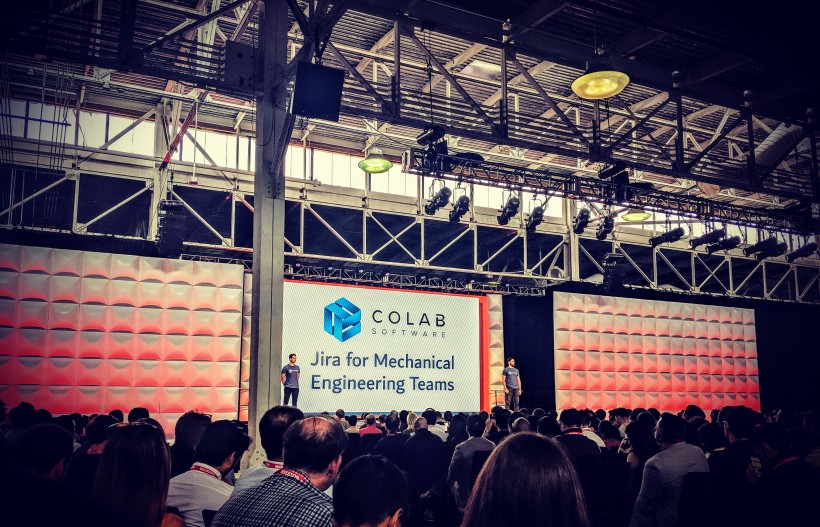Even if Verafin did not exist, the Newfoundland and Labrador startup community would have had a really good year in 2019.
Of course, Verafin does exist, and it did raise $515 million in equity and debt in September 2019. Wrapping up our look at startup data in the four Atlantic Provinces, we’re examining the data in Newfoundland and Labrador, the province that drove the startup agenda in 2019.
The $515 million Verafin deal – which was a precursor to the company’s US$2.75 billion exit -- was a testament to the company’s management team and the ecosystem in St. John’s. But even if we look past that deal, there was a lot to like about the performance of the region’s northeastern province.
The other piece of big news to come out of Newfoundland and Labrador was not one but two companies being accepted into the Y Combinator accelerator in Silicon Valley. CoLab Software, which makes advanced design and manufacturing collaboration software, was the first to announce it had been accepted into the prestigious program. CoLab capitalized on its Y Combinator connections by raising $2.7 million after the cohort ended.
Then it emerged that a second St. John’s company, Sequence Bio, also attended the program. Sequence made less noise about the accelerator, preferring to highlight the launch of its NL Genome Project, which will collect genetic samples from 2,500 Newfoundlanders with the goal of improving the development of new drugs.
In total, Newfoundland and Labrador companies other than Verafin raised $15.6 million in 2019 – more than Newfoundland companies have raised in all but two years since 2011. Some of the funding came from Killick Capital and Pelorus Venture Capital, which have been strong backers of companies in the province.
We received a strong response to our survey from Newfoundland and Labrador startups, with 27 percent of the 86 companies completing the form. What we saw was stellar job growth, led by the scaling and elite companies. Overall, employment at the province’s startups increased 17 percent, so they were employing 1,197 people. What was most impressive was the revenue growth – up 133 percent.
Newfoundland and Labrador Fact Box, 2019
| Number of Companies | 86 |
| Funds Raised | $539.6M |
| Number of Jobs | 1,197 |
| Job growth | 17% |
| Revenue growth | 133% |
| Elite Companies | 8 |
| Scaling companies | 6 |
| New companies | 21 |
| Failures | 9 |
| Zombies | 8 |
Source: Entrevestor Databank
There were concerns late in 2019 that the market for technology talent was too tight in St. John’s and that the companies would not find the people they needed to grow. By early 2020, we were hearing that companies were managing to find junior and mid-level developers, but the problem was in finding senior people, like CTOs. By spring, the big concern was that the companies had assembled great teams, and now they had to maintain their staffs in the face of the COVID-19 lockdown.
Last year, we reported on the beginnings of the life sciences sector in St. John’s, and that flourished in 2019 into an interesting cluster of medtech companies. The strength of the group is its ability to work closely with medical professionals through Bounce Health Innovation, as well as the Living Labs and Test Beds program at the Eastern Health Authority.
While Sequence Bio has been going for several years, most of the other medically focused companies are only a year or two old, such as:
o BreatheSuite, which helps people use inhalers properly;
o Polyunity, which uses 3D printers to create medical simulations of parts of the human body. These can be used to train medical professionals around the world;
o Granville Biomedical, which is improving women’s health by 3D printing vaginal simulation products;
o And Cyno, which has developed a healthcare platform offering secure online health services.
Read our Analysis of the NL Government's Gains from the Verafin Exit
Memorial University of Newfoundland has always been a cornerstone of the island’s innovation community, and the university has deepened its ecosystem in the past couple of years. Genesis, MUN’s innovation hub, has found the silver bullet for incubating startups: idea-stage companies can attend the Evolution program, which helps them understand their product-market fit; and the more successful can graduate to the Enterprise program, which helps them to scale. In 2019, the organization launched its own $775,000 micro-fund and purchased the Common Grounds co-working space, rebranding it as Genesis Coworking.
The Memorial Centre for Entrepreneurship has established itself as a force in the development of new companies at MUN in just a few years. The MCE is dedicated to helping MUN students and faculty learn about entrepreneurship and get their businesses off the ground. Several noteworthy startups are past winners of the MCE’s Woodward Cup, which provides seed funding for young companies.
MCE is also a key component of the Bounce Health initiative, which is helping to generate medical tech companies in the province. MUN deepened its oversight in innovation with the appointment of Paula Mendonça as Director of Innovation and Entrepreneurship.










